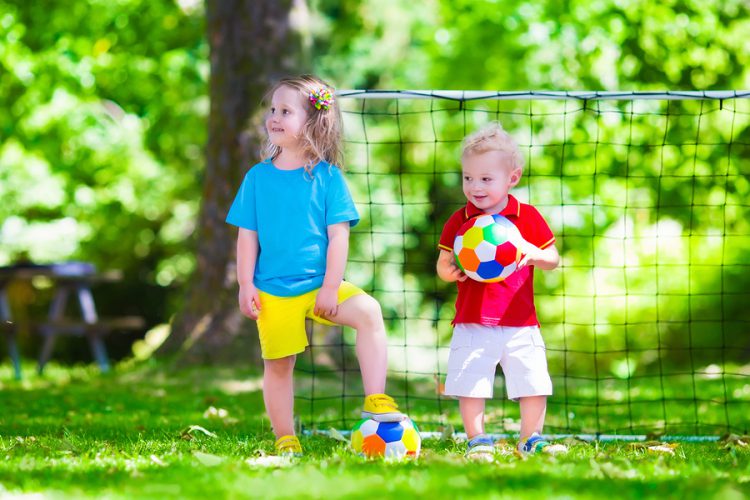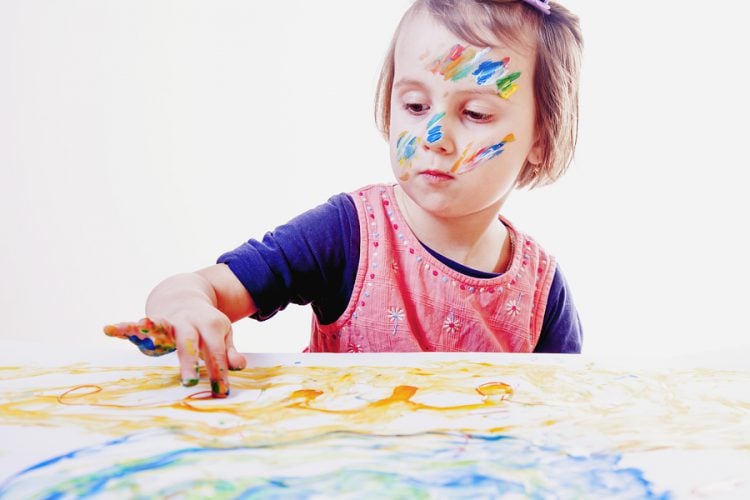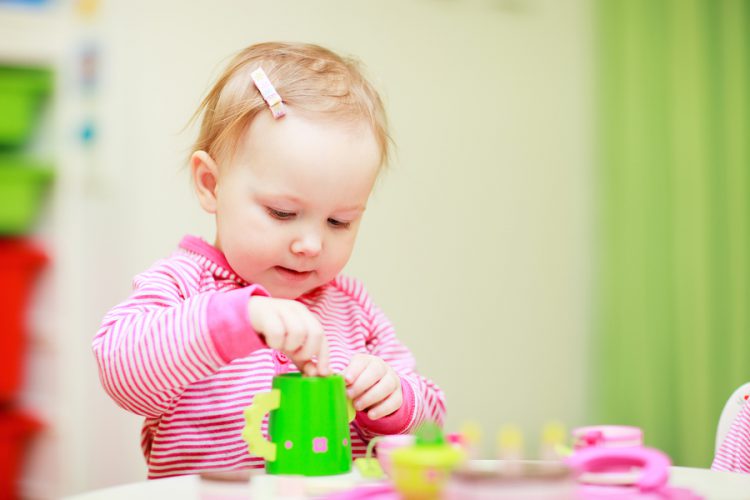Early childhood is a time of great learning. It is also a time when learning is fun and effortless.
The beauty of these early years is that this learning happens purely through play. Babies spend all their time exploring their environment and watching the world, and toddlers and preschoolers make serious business out of playtime.
Watching a baby or young child play is a truly beautiful sight. They are invested, focused, willing and determined. These are all necessary ingredients for learning.
During play, children reach developmental milestones in four major areas – physically, emotionally, socially and intellectually.
As parents, we want to make sure that our young children receive the best possible head start in life. We want to play with them, stimulate them and provide opportunities to learn at every turn.
Here is a guideline of 5 principles to consider when planning your child’s playtime, to ensure they receive exposure to the best kinds of activities.

Get Moving
Movement is an important activity that children should be engaging in multiple times a day.
When children are moving, they are developing gross motor skills such as strength, balance, eye-hand and eye-foot coordination, postural control, agility and more.
The development of these large muscles is necessary for children to then strengthen and learn to control the small muscles, such as the finger muscles.
Movement can be unstructured – such as during free play outside – or structured – such as building an obstacle course or playing hopscotch.
Here are some simple, fun movement games you can play with your little ones.
Have Fun with Music
Music is an important aspect of a child’s learning. It includes many different activities such as:
- Learning and singing nursery rhymes
- Playing with instruments
- Learning about rhythm (e.g. marching or tapping to a beat)
- Learning finger rhymes and action songs
- Dancing and moving rhythmically
- Saying poems
- Body percussion
The benefits of music in early childhood are numerous. A simple activity such as saying a nursery rhyme can teach rhyming, phonological (sound) awareness, vocabulary, comprehension, patterning, rhythm etc. An action rhyme can work on those skills, as well as develop gross motor control, ability to follow instructions etc.
In order for children to learn to read they need to develop many pre-reading skills – one being phonological awareness.
What better way to start teaching your toddler to read than by singing fun nursery rhymes together?

Build Creativity
Creativity is a skill that must be fostered in young children. It is built less by teaching how to be creative, and more by allowing enough opportunities to naturally ignite creativity.
There are many ways to build creativity – through stories, discussions, music, movement, building with construction blocks etc. One of the best ways to build it is through art activities.
A huge benefit of art activities is how they develop a child’s fine motor skills. The more opportunities a child has to do art activities, the better they will develop their pre-writing skills.
The most important thing about art activities is to provide lots of different mediums, and lots of different tools. Let your young toddlers experiment with these tools and create in any way that feels natural to them. Provide materials and tools such as:
- Different types and textures of mediums – paper, playdough, cardboard, chalkboards, sand trays, newspapers, tissue paper, white boards, outdoor surfaces (paving), glass, glue, paint etc.
- Tools of different sizes and thicknesses – wax crayons, whiteboard markers, pencils, paintbrushes, chalk, scissors etc
- Extra items for fine motor control – buttons, threading beads, macaroni etc
You can basically present anything and your child will create something. Give your child some paper and glue, and some leaves and twigs from the garden and see what happens. Children are naturally drawn to creating.
Books, Books and More Books!
Books are a gift and a wonderful resource in any home. It is never too early to start reading to your baby, and you can never have enough books!
Children learn an incredible amount just from listening to a parent read every day.
Reading:
- increases vocabulary
- expands knowledge
- increases attention span
- teaches language patterns
- encourages conversation
- teaches moral lessons
- builds empathy
- develops listening skills
- builds thinking skills
- stimulates imagination
- encourages independent reading
- and more!
Even though your baby cannot yet understand the words, you are still developing his sound awareness, understanding of patterns in language, concentration and ability to listen and engage, as well as providing a special bonding experience.
Make reading a priority in your home!

Make Time Every Day for Free Play
Of the activities listed here, free play is the most non-negotiable. Children need lots and lots of time to play freely every day.
It is necessary for them to learn. They need opportunities to choose their own activities, plan them and problem-solve while playing.
During free play children engage in the following types of play:
- physical
- symbolic or fantasy
- creative
- constructive
- language
- sensory-stimulating
- competitive
- expressive
- exploratory
Children must have opportunities for physical play, both indoors and outdoors, as well as time to play with construction toys, puzzles, dress-up and dramatic play items.
They may gravitate towards doing their own art activities, singing or dancing, playing a game or “reading”. Whatever they choose, it is important for their overall development and should not be limited in favour of adult-guided activities.
Read more about the importance of play here.
Please share your comments below and let us know what kinds of activities your children love doing during their free time!
ADAM & Mila contributor Tanja is a former preschool and early grades teacher. She started her blog Empowered Parents to help parents get involved in their children’s learning journey. She has a passion for talking about the benefits of play in early childhood and how you can prepare your child for school through play. You can find more of her articles at www.empoweredparents.co or on Pinterest





It is right time for the brain development (i.e.1 to 6 years) for that your artical and activities are very good